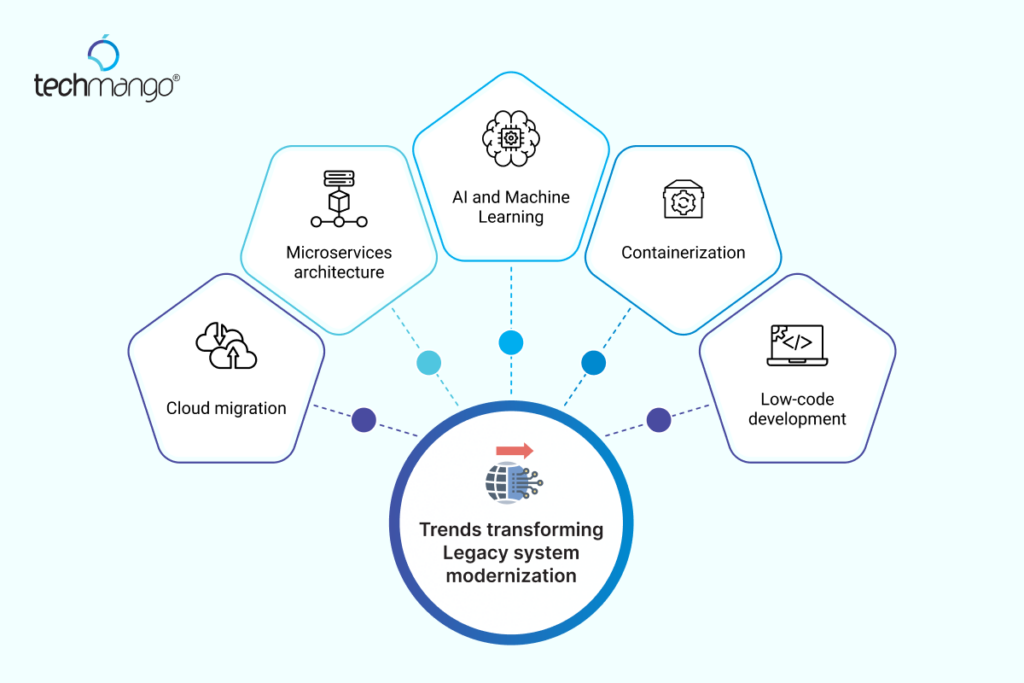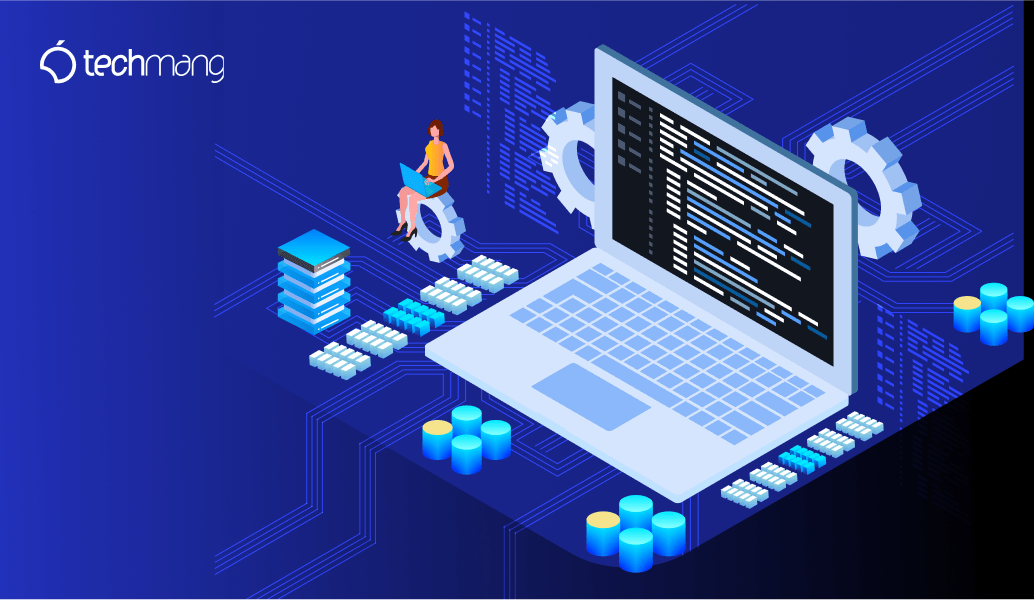So, in order to face the digital world full of technological innovations, businesses need to take strategic steps to modernize their legacy systems to stay competitive. However, you need to understand that legacy system modernization is a lot more than just updating systems.
It is well-known that a few things in life get better with age. But, software is not one of them. Legacy systems are complicated to handle for IT and business. This is because they hold the organization back. The systems running on out-of-date technologies will be complex, rigid, and difficult to scale up. This will eventually slow down the organization’s performance. Here is where Legacy system modernization comes into the picture.
To say in simpler terms, legacy system modernization refers to the process of transforming outdated software systems into efficient, scalable, and secure platforms. Today, a lot of companies have understood the need for legacy system modernization and have initiated steps toward it.
However if you are still wondering why updating legacy systems should be considered essential, you can take a quick look at the blog to know about the importance of embracing legacy system modernization.
In this blog, you will get deep insight into some remarkable trends transforming legacy system modernization in 2024 and a unique way to obtain a best-in-class legacy system modernization approach within your budget.
Recent Posts
Modernize your business processes with unrivaled Legacy system modernization services
Trends transforming Legacy systems modernization
Cloud migration
One of the most remarkable and transformative trends in legacy modernization is the migration of legacy apps to the cloud. Cloud migration offers a lot of modernization benefits including flexibility, scalability, improved security, and cost-efficiency. By moving to cloud infrastructure, you can make the best use of the latest technologies such as machine learning (ML) and artificial intelligence (AI), in order to gain insights from their information and boost customer experiences.
Microservices architecture
If you are modernizing step by step, you are likely implementing microservices architecture in your enterprise by breaking legacy apps into independently deployable and smaller services. This approach improves agility, as enhancements and updates can be made to individual components without any effect on the system.
Microservices will also facilitate easy integration with other apps and services, enabling a more smooth digital ecosystem.
Recent Post:
Legacy Modernization: The Key to Success for Automobile Spare Parts Manufacturing Companies offered by Techmango
AI and Machine Learning in Legacy Modernization
Integrating Machine Learning (ML) and Artificial Intelligence (AI) is important in legacy system modernization. It provides automated, smart solutions that boost operational efficiency and decision-making processes. AI and ML can analyze wide datasets from legacy apps, recognizing insights and patterns that were inaccessible earlier.
In addition, AI-driven tools can also help in the modernization process, automating the legacy code transformation into modern programming languages and architectures. This will reduce manual effort and minimize errors. Incorporating ML and AI into legacy system modernization will revitalize outdated platforms to boost future growth and innovation.

Containerization
The trend towards containerization, utilizing technologies such as Kubernetes and Docker closely relates to microservices. Containers encapsulate microservices with their dependencies. Thereby making them portable across various environments. This in turn will promote consistency in production, development, and testing, and simplifies deployment and scaling. Containerization will further reinforce the security and reliability of modernized apps.
Low-code development
Similar to AI, low-code development drives a more efficient and faster modernization process. Low-code offers a modular and phased approach, imposing governance and best practices. This will eventually reduce disruption and risk.
Related Posts
Fostering innovation: Top Digital transformation trends to thrive in the digital age
Legacy system modernization strategies
From the above section, you will now be clear with some key trends shaping legacy system modernization in 2024. As an entrepreneur, you also need to get acquainted with some unique legacy system modernization approaches and we can see those now.
Prioritizing continuous updates – This will keep the system aligned with state-of-the-art technologies and reduce the risk of becoming a legacy system.
Supervising architecture – This will make sure that growth and modifications in the system’s architecture are carefully monitored and guided
Maintaining proactive technical debt management – Building on the continuous update concept, managing and reducing technical debt is another notable aspect. This includes activities like refactoring problematic code areas, maintaining an efficient codebase, and so on.
Embracing changes with agile practices – Agile methodologies focus on collaboration, flexibility, and responsiveness to change. The modernization approach can be broken down into several iterative cycles that enable teams to adapt and refine strategies as needed.
Taking an incremental modernization approach – When it comes to modernizing legacy systems, an incremental approach proves to be more practical than a comprehensive overhaul. Taking an incremental approach to modernization will reduce disruptions and provide a very steady delivery of business value.
Leveraging automated testing – The changes or updates made during the modernization process should not compromise existing functions. They must rather support continuous integration and deployment processes. It is essential to choose a testing framework that aligns with the tech stack and supports different testing types.
Techmango’s experience in Legacy System Modernization
A company embracing legacy system modernization may find it quite challenging to deal with them. However, we have nearly a decade of experience in this arena, helping our clients across the globe to improve their businesses.
Over the past few years, Techmango has successfully modernized innumerable legacy systems for companies across industries. We include a team of highly skilled talent pool with rich expertise in legacy system modernization so that meeting all kinds of requests related to legacy software will be just a piece of cake for us, right from consulting to comprehensive system modernization.
So, approach us to get an apt legacy system modernization service for your business and gain better business value.


A great overview of why legacy system modernization is essential in today’s fast-paced tech landscape. At Exiga Software Services, we believe that modernizing legacy systems isn’t just about staying current—it’s about unlocking agility, performance, and innovation. Embracing trends like cloud migration, microservices, and AI-driven transformation is key to future-ready business success.